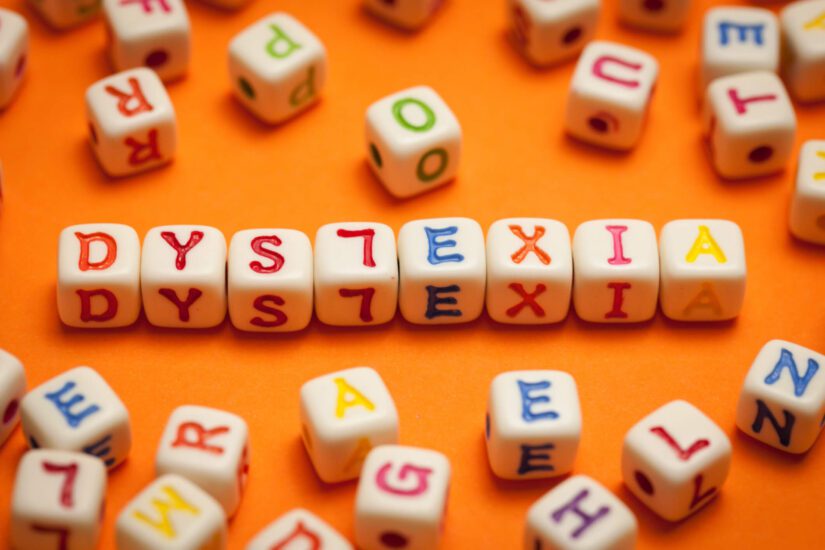Reading is a vital skill; it’s hard to imagine doing well in school, or in life, when reading and writing are a struggle. Yet people with dyslexia deal with this every day. It makes school more difficult, it makes socializing more difficult, and it damages self-esteem. People with dyslexia face many obstacles in life, but perhaps the worst is the assumption many people make — that they have sub-par intelligence. This, however, is not the case, and while dyslexia can present many challenges, it does not preclude a happy, prosperous life.
What is dyslexia?
A common misconception is that dyslexia is a visual disorder in which the brain mixes up the order of letters when reading. This, however, is not the case. In truth, it is a neurological problem that affects the brain’s ability to process graphic symbols. It can also make it difficult to associate words and symbols with their accompanying sounds. Other symptoms can include difficulty in telling left from right, an inability to retain knowledge of spelling and pronunciation, shorter attention span, and, a higher rate of autoimmune illnesses. Furthermore, people with dyslexia have a higher rate of ADHD.
What causes dyslexia?
There are plenty of theories, but no one knows for sure. The current thinking leans towards a genetic source, since dyslexia often runs in families. However there is no firm evidence of this.
Dyslexia, unfortunately, is not temporary; it is a lifelong affliction.
Are people with dyslexia less intelligent?
Absolutely not! In fact, people with dyslexia are often unusually bright. Indeed there is a theory that suggests that, similar to the idea of a lost sense increases the sensitivity of the remaining senses, dyslexia may wind up sharpening other parts of the brain. In truth there is a long list of remarkable people with dyslexia who have attained stunning success, such as Steven Spielberg, Pablo Picasso and even Albert Einstein.
It is crucially important to recognize that dyslexia is not in any way a reflection of intelligence. Children with dyslexia especially need constant reminding of this fact, because chances are they will frequently feel like they are less smart than their peers.
What is the treatment for dyslexia?
At present there is no treatment or medication for dyslexia. There are, however, coping strategies that can work around the disorder. For instance, while it may be extremely difficult to make sense of the written word, people with dyslexia are likely to instantly comprehend when those same words are read out loud to them. Indeed this is a standard approach to dealing with dyslexia.
At the same time, there is a good chance that a young person with dyslexia may be gifted in other ways, sometimes spectacularly so — indeed many people refer to dyslexia as a “gift” for this reason. The important thing to remember is that a diagnosis of dyslexia is in no way a sentence of doom. People with dyslexia can dream just as big, and make those dreams come true.


